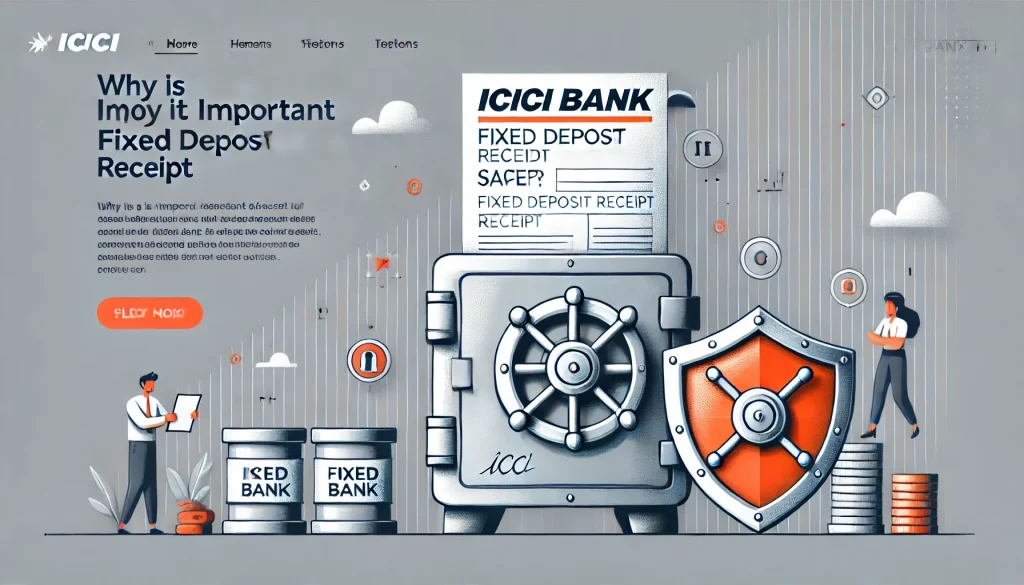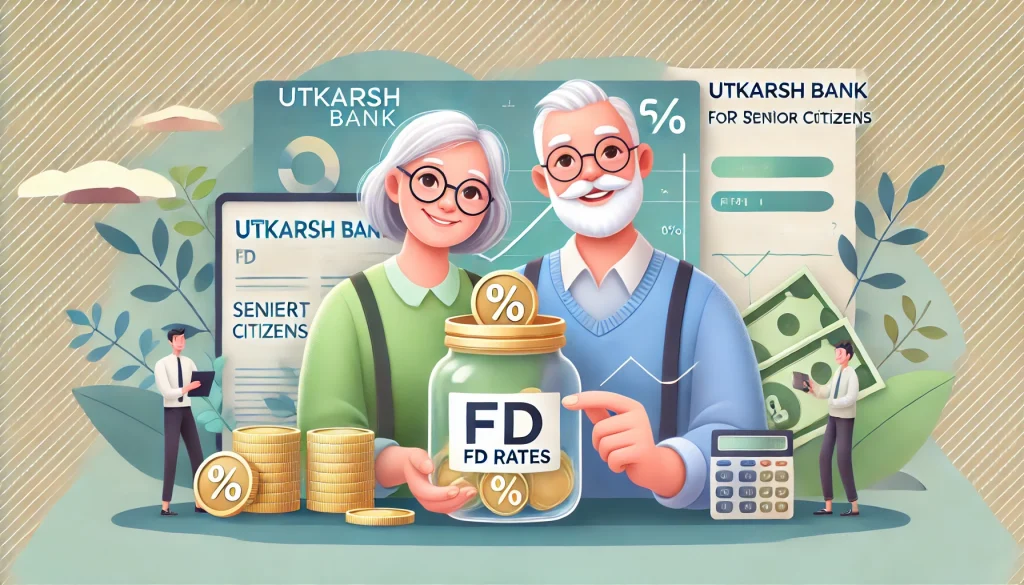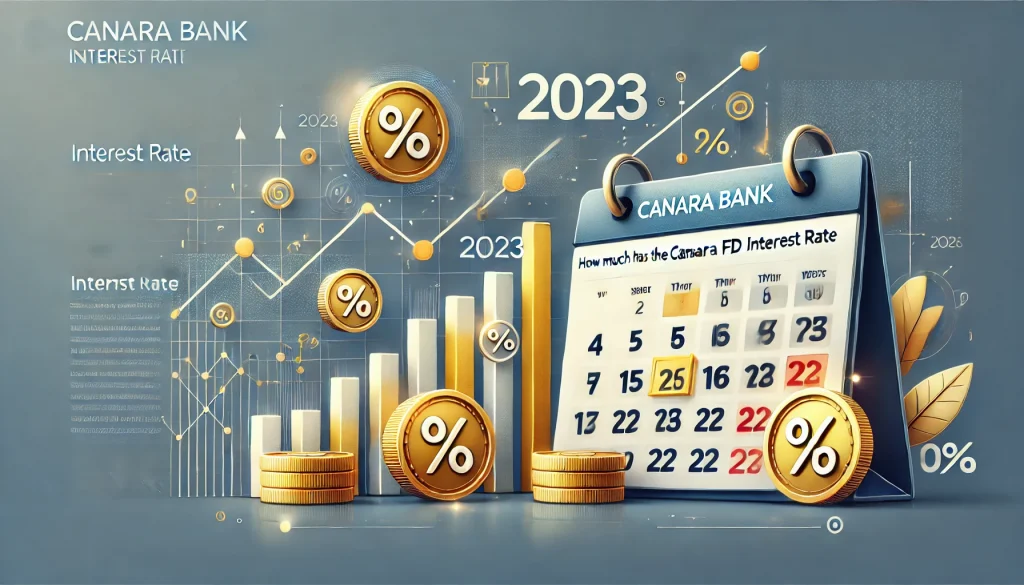
Are you looking for a risk-free way to invest your money? Look no further than a fixed deposit (FD) account. FDs pay higher interest rates than savings accounts and are an excellent choice for those looking for a consistent return on their investment. Whether you’re a first-time investor or a seasoned investor looking for competitive rates – this blog will help you get the best interest on a fixed deposit.
So let’s dive right in to look at the best FD interest rates available in India in 2024
Highest FD Interest Rate 2024
Here are a few banks that give the best interest on fixed deposits.
| Bank | General Public |
|---|
Top 10 Tax-Saver FD Interest Rates 2024
| Bank | General Public | Senior Citizen |
|---|---|---|
| DCB Bank | 7.75% | 8.25% |
| Deutsche Bank | 7.25% | 7.25% |
| RBL Bank | 7.10% | 7.60% |
| HDFC Bank | 7.00% | 7.75% |
| Axis Bank | 7.00% | 7.75% |
| IDFC Bank | 7.00% | 7.50% |
| State Bank of India | 6.50% | 7.50% |
| Punjab National Bank | 6.50% | 7.30% |
| Bank of Baroda | 6.50% | 7.50% |
| Kotak Mahindra Bank | 6.20% | 6.70% |
Best Co-operative Bank FD Interest Rates 2024
| Bank | General Public |
|---|
Best Rural Bank FD Interest Rates 2023
| Bank | General Public |
|---|---|
| Karnataka Gramin Bank | 7.35% |
| Madhya Pradesh Gramin Bank | 7.25% |
| Saurashtra Gramin Bank | 7.25% |
| Baroda Gujarat Gramin Bank | 7.05% |
| Jharkhand Rajya Gramin Bank | 7.00% |
Best Small Finance Bank FD Interest Rates 2024
| Bank | General Public |
|---|
Best Private Sector Bank FD Interest Rates 2024
| Bank | General Public |
|---|
Best Payment Bank FD Interest Rates 2024
| Bank | General Public | Senior Citizen |
|---|---|---|
| Paytm Payments Bank | 7.75% | 7.75% |
| Airtel Payments Bank | 6.50% | 7.00% |
| Fino Payments Bank | 6.25% | 6.25% |
Highest FD Interest Rates for Foreign Banks in 2024
| Bank | General Public |
|---|
Benefits of Fixed Deposits
Fixed deposits have been one of the most popular choices for Indian investors for ages. Here are some attractive benefits of fixed deposits that make it an irreplaceable choice for the masses.
1. Investment Tenure
Fixed deposits allow you to choose your investment tenure based on your convenience. Most banks offer you an investment tenure from 7 days up to 10 years. You can choose a horizon that fits well with your financial goals.
2. Guaranteed Return
One of the most prominent reasons why FDs are so popular among investors is the minimal level of risk associated with them. Unless there are some extreme economic conditions, you can be rest assured to get guaranteed returns on your investment.
3. Senior Citizen Interest Rate
Fixed deposit schemes for senior citizens offer higher returns than the general public. This additional return rate can range from 0.25% – 0.75% across various banks and schemes. It can be a lucrative passive source of income for senior citizens during their retirement.
4. Loan against FD
If you need urgent money and the lender asks for collateral, your fixed deposits can come to your rescue. Most banks allow you to pledge your fixed deposit to raise a loan without breaking it. Once you fully repay the loan, the bank will waive off all its rights on your FD.
5. Premature Withdrawal
Another way to meet your urgent financial requirements is by prematurely withdrawing your FD. The bank would levy a small fee in return, but you will still get the money without raising a loan.
6. No Upper Limit on the Deposit Amount
Many banks impose a minimum deposit limit on their fixed deposits, but there is no upper ceiling on the maximum amount. Hence, you can make a fixed deposit of any lump sum amount you want.
7. Interest Compounding
Depending on your bank, you can also earn interest on your accrued interest. This compounding of interest makes your corpus grow much faster and builds more wealth over time. You can even choose the interest payout schedule at your convenience.
8. Tax-saving FD
If you choose a tax-saver FD scheme and file your returns under the old regime, you will be eligible to get tax benefits under section 80C of the Income Tax Act.
Factors Affecting Fixed Deposit Interest Rate in India
Fixed deposit interest rates constantly keep changing in India based on RBI’s repo rate announcements. Banks periodically announce their revised rates to remain competitive and at par with the changing economic conditions.
The changes are often announced at the beginning of a new financial year or quarter. Here are some key factors that affect the interest rates for fixed deposit schemes.
1. Deposit Duration
This is the first factor that affects your interest rate. The duration for which you want to make the deposit makes an impact on your interest rate. In most cases, medium-term deposits of 3-5 years fetch the highest interest over long-term deposits of 10 years or short-term deposits of one year. However, it depends on the deposit amount as well.
2. Deposit Amount
Most banks give you a better return when you deposit a larger amount of money. Especially if your investment amount is above one or two crores, you will get higher returns than you get for less than one crore. However, this varies from bank to bank. Therefore make sure to confirm the deposit rates in advance.
3. RBI Guidelines
Every action taken by RBI indirectly affects your FD rates. Whenever RBI changes its cash reserve ratio and repo rate. As a result, banks also change their interest rates accordingly. These changes affect all banking products, including fixed deposits.
4. Inflation and Recession
These are two of the most prominent factors that affect the interest rate on fixed deposit schemes. When inflation hits, banks increase the FD rates to match the inflation rates. Similarly, when the recession hits, RBI reduces the interest rates on the central bank’s reserves, influencing banks to push the funds into the market. This, in return, leads to lower interest in FDs as well.
5. Other Economic Factors
The entire economic condition of a country plays a very important role in determining the interest rate of fixed deposits and other financial instruments. For example, when the credit demand in the country increases, banks increase the interest on fixed deposits to attract more funds and vice versa.
6. Age of Depositor
As mentioned, senior and super-senior citizens usually get higher interest rates than the general public. Hence, if you are above 60 years, your interest rate in the same bank for the same amount would be higher than someone who is under 60 years of age.
Taxation on Interest Earned on FD in Bank
If you invest in a tax-saving FD, you can claim a tax exemption of up to Rs. 1.5 lakh under section 80C of the Income Tax Act. However, remember that this tax exemption is available only for the amount you invest and not on the interest income you earn from it.
Your interest income is taxable under the head ‘income from other sources.’ If your interest income from all your accounts with the bank exceeds Rs. 40,000, then the bank shall deduct TDS on the same. If you are a senior citizen, then the threshold limit increases to Rs. 50,000.
Additionally, if you have furnished your PAN card details to the bank, the TDS would be 10% of the interest earned. If you fail to provide your PAN, then the TDS will be 20% of your interest earned.
Taxation on Interest Earned on FD in NBFC
Suppose you earn interest from an FD account opened in a Non-banking financial company (NBFC). In that case, the threshold limit of Rs. 40,000 comes down to Rs. 5000. It means that if you have an interest income accruing from any NBFC exceeding Rs. 5,000, a TDS deduction will be applicable on the same.
The PAN card requirement here stays the same as for banks. If you furnish your PAN, the TDS deduction shall be 10%, or otherwise 20%. If you are an NRI and fail to provide your PAN, the TDS deducted shall be 30% instead of 20%.
FAQs
Disclaimer
This article is solely for educational purposes. Stable Money doesn't take any responsibility for the information or claims made in the blog.


